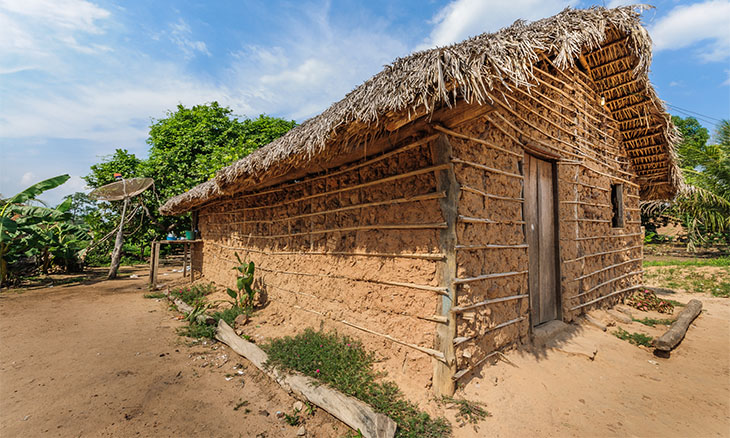Mozambique to tighten tax system in 2025, seek 200,000 new taxpayers
190 million meticais for 2,000 “casas de pau-a-pique” – Improvement project

It is called ‘Projecto Melhoria’ (Improvement Project), and is designed to improve the condition of wattle-and-daub houses (“de pau-a-pique”*), which generally have walls covered with clay and a grass roof.
At an estimated cost of around 190 million meticais, the ‘Melhora’ intervention will replace grass rooves with zinc sheets, improve windows and doors, and lay cement floors. The project is expected to cover around 2,000 houses in rural areas in the centre and north of the country during the current five-year governance cycle.
The Housing Promotion Fund (FFH) will be in charge of implementation, and will employ local artisans. Half of the homes covered are in the province of Cabo Delgado, which is under pressure because of internal migration caused by terrorist violence.
“The initial project was 1,000 kits for the whole country, but looking at the situation in this part of Mozambique, where there is a huge pressure in terms of living conditions; our brothers are moving here,” Minister of Public Works, Housing and Water Resources, João Osvaldo Machatine, said in Pemba during the project launch.
“We think it is better to give our contribution and concentrate the 1,000 kits for the province to alleviate the suffering of our populations,” the minister explained.
“Habita”
Moving on to the city of Nampula, Minister Machatine delivered 22 houses built as part of the ‘Habita’ project, aimed at young married people, recent graduates and civil servants.
Mother of four Matilde Luabo has lived in a rental house for seven years and now, for the first time, has her own Type 2 home, for which she must pay 13,000 meticais per month for 15 years.
“That counts. because, where I used to live, I paid 7,000 [meticais] a month for a Type 1 house and the house is not mine. This one, after a while, will be mine,” she says.
The 22 houses are part of the second batch of a total of 100 houses to be built in the city of Nampula. The first ones were delivered last year, and 36 remain to be built. The Minister of Public Works says the aim of the project was simply to keep the cost low.
“We would like to have the streets properly executed and backyards properly fenced, but if we did all that we would not be delivering 22 houses today. Maybe we would be delivering five or six houses. Also, if we made these other investments, they would make our houses more expensive,” Machatine explained.
There have been criticisms about the quality of work in many projects carried out by the government. João Osvaldo Machatine is reluctant to generalise, explaining that there are cases in which the contractors deliver according to the terms of reference, but there are also times when execution is poor, in which case, contractors and respective inspectors have been held accountable.
The general population and housing census of 2017 reveals that, of the more than six million homes recorded there, about three million are described as huts, a measure of the precariousness in which a significant part of the national population lives.
By Ricardo Machava and Hizidine Achá
- Wattle and daub ( (pau-a-pique) is a building method in which a woven lattice of wooden strips called wattle is ‘daubed’ with a sticky material usually made of some combination of wet soil, clay, sand, animal dung and straw.













Leave a Reply
Be the First to Comment!
You must be logged in to post a comment.
You must be logged in to post a comment.